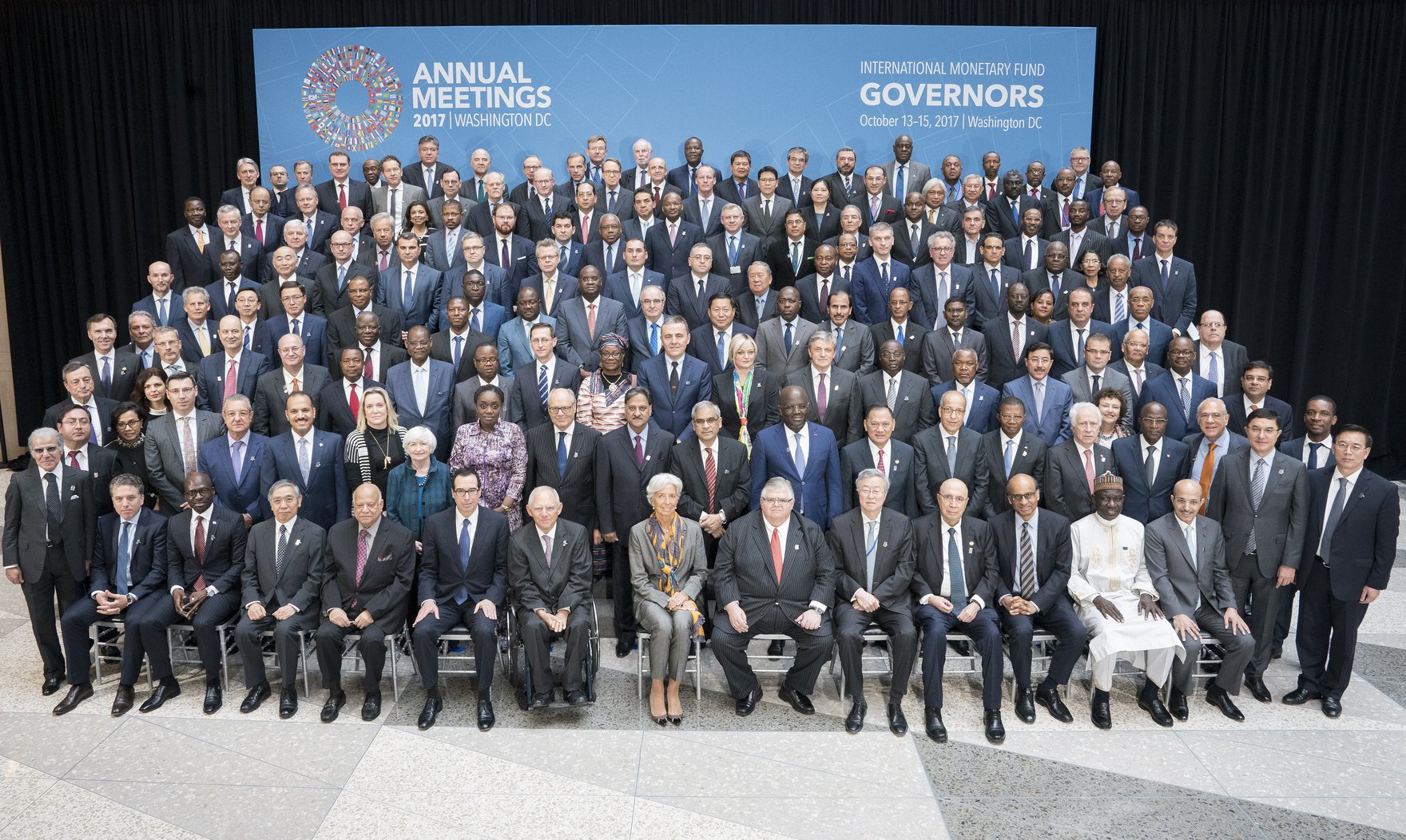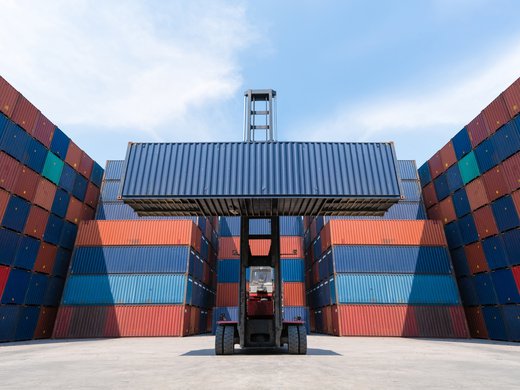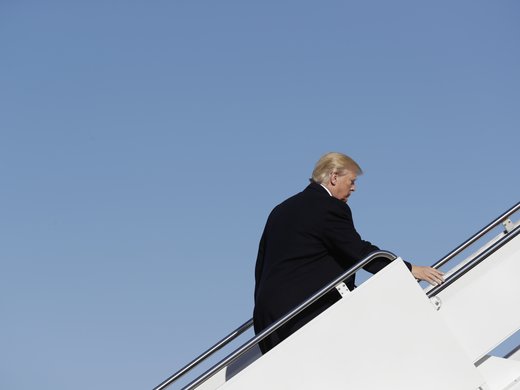The prospect of a tit-for-tat trade war between the United States and China has increased dramatically in recent weeks, rattling stock markets around the globe. The market’s reaction to new tariffs, and to the affected players’ retaliation, reflects concerns that a trade war would imperil economic growth and result in large costs to firms with complex supply chains dispersed throughout the global economy. The escalation in trade war rhetoric has certainly alarmed Christine Lagarde, the managing director of the International Monetary Fund (IMF).
In advance of the IMF’s spring meetings, which will take place April 16–22 in Washington, Lagarde issued an uncharacteristically blunt warning about the risks to shared prosperity posed by the looming trade war. In her capacity as managing director, Lagarde is a thoughtful and sophisticated steward of the global economy. Her rebukes to members, while clear and forceful, are generally delivered with a beguiling mix of charm and diplomacy. But, in “curtain-raiser” speeches outlining issues on the IMF agenda last week, she took direct aim at three of the Fund’s biggest players. Lagarde called out the United States and China for their tariff threats, and she cited Germany’s large trade surplus as problematic.
As managing director, Lagarde was right to single out three of the IMF’s largest members in this way — with size, comes responsibility. Her job is to protect and defend the rules-based system that delivers shared prosperity to millions around the globe. In a sense, she referees the international trade and financial “game.” And if the largest players in the global economy are offside, she has a duty to call them out. In concrete terms, her role is to ensure that Fund members do not engage in policies that the IMF’s Articles of Agreement call “destructive of national or international prosperity.”
Trade wars are remarkably bad policy, or “destructive,” in the Fund’s lexicon. In large part, this is because it is very difficult for a country to “win” without harming its own citizens, as exhibited by the United States.
Not long ago, US President Donald Trump boasted that trade wars are easily won. Now, he is furiously ratcheting back his threats in the wake of China’s retaliation and second-guessing his decision to withdraw from the Trans-Pacific Partnership (now the Comprehensive and Progressive Agreement for Trans-Pacific Partnership).
If the costs of trade war are so easily contained, then why are administration officials reportedly exploring ways, including Depression-era farm supports, to assist American farmers at risk of becoming collateral damage from Chinese tariffs on US agricultural products?
Sure, measures from the 1930s might actually help farmers in the Midwestern states that supported Trump in 2016. But these measures represent distortions to a politically important sector and could disrupt commodity markets around the world. Those harmed could be expected to respond, possibly triggering a new round of trade actions. This was the case following the disastrous Smoot-Hawley Tariff Act of 1930. And, while Smoot-Hawley tariffs did not cause the Great Depression, the disruption to trade from such retaliations and the steady escalation of tariffs that followed contributed to global stagnation in the 1930s. Economic collapse bred despair and desperation, fuelling the authoritarianism that eventually led to global war.
The IMF was created to help its members avoid a repetition of this tragic experience. By promoting timely, orderly international adjustments to limit the size of trade and current account imbalances, the Fund helped lower tariff and other trade barriers, fostering global growth. In time, this growth changed the way people looked at the global economy, from a zero-sum game in which one player can only gain at another’s expense, to a positive-sum game that benefits all who play by the rules.
But, as Lagarde warns, the rules-based trade system that has delivered prosperity to millions around the globe is now at risk.
It is not surprising, therefore, that stock markets are unsettled by each new tariff threat and each new early-morning, presidential tweet. The risk to the global economy and shared prosperity that Lagarde worries about is very real. But lower growth and less wealth creation aren’t necessarily the biggest costs of a trade war.
The erosion of international cooperation that follows the adoption of policies “destructive of national or international prosperity” will certainly have enormous global impact, but it might not be felt for some time.
Put simply, the rules-based system of international governance that was painstakingly constructed over the past 70 years under US leadership and with US funding has made the world more secure, stable and peaceful. The US international financial diplomacy over those seven decades has supported IMF efforts to prevent temporary shocks to global output from becoming permanent declines in living standards. That leadership is receding behind a veil of “America First” policies.
This retreat of leadership is cause for concern. In a world in which its members were engaged in trade skirmishes and their cooperation with each other in short supply, the IMF would be less able to secure the timely, effective action needed in times of crisis.
In her curtain-raiser, Lagarde made a point of addressing looming trade wars and the low growth likely to follow. But she is likely well aware of the long-term damage done by Trump’s curious mix of ignorance and bravado. The first half of the twentieth century shows that the costs of his actions could be astronomical.



